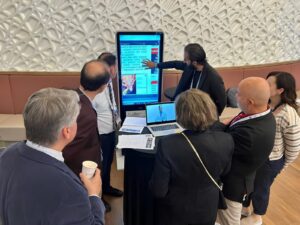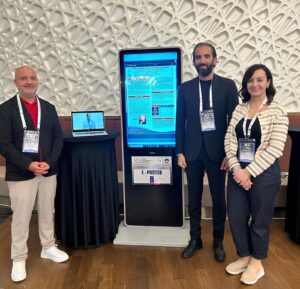
History
While all academic sciences are undergoing a transformation with the effect of rapidly developing technical innovations, one of the most prominent factors in this change is the AI technology. With the great rise of AI technologies in academic fields, it has shaken the traditional education paradigm from its foundations and opened a new era of transformation. Near East University, which closely follows the traces of the new transformation, has developed NEU’s AI. Prof. DUX. It was developed in line with GPT3.5 and GPT4 infrastructures by the International Research Center for AI and Internet of Things (IoT) directed by Prof. Dr. Fadi Al-Turjman at NEU’s AI and Robotics Institute. AI. Prof. DUX, which was developed during the academic year 2022-2023, started its education-trAIning period for the first time in Feb 2023. AI. Prof. DUX has been piloted in the Spring Semester in multiple faculties with a pilot application throughout the university and other external academic institutes in Turkey.
Purpose
The general purpose of AI. Prof. Dux is to shape the course management process according to the individual needs and learning styles of the students. Other general purposes of AI. Prof. Dux are listed as follows:
– To prepare personalized lessons by analyzing students’ previous performances, interests and learning styles while creating personalized learning plans in accordance with the individual learning needs of the students
– To facilitate the understanding of abstract concepts while providing students with concrete experiences. For example, making learning more effective with applications such as videoing historical events in history courses or visualizing cellular structure in biology courses, etc.
– To increase student participation by using interactive learning materials, simulations and gamification techniques
– To guide students in setting goals and evaluating their performance while following the student progress. In addition, Prof. Dux can provide customized learning suggestions by determining students’ strengths and weaknesses.
– Prof. Dux can use natural language processing (NLP) techniques to support language learning processes. This approach, in addition to having the potential to enrich and personalize the language learning experience, is seen as an important step towards making learning processes more effective and efficient while offering new perspectives in the field of education
– To help instructors monitor students’ progress, performance and needs
– To always help instructors in creating course content, goals and achievements, and to analyze the student performance accordingly and make suggestions. Thus, teachers can guide students more effectively
– It evaluates the student performance quickly and objectively. Students’ exam results, homework or quizzes can be automatically evaluated and instant feedback can be provided. This provides students with the opportunity to quickly understand their strengths and weaknesses.
Scope
AI.Prof.Dux’s scope of work is not only to affect student and instructor dynamics, but also the structuring of educational institutions and systems. At this point, how much administrators of educational institutions adopt artificial intelligence and integrate it into their educational strategies becomes even more important. AI.Prof.Dux’s scope of work includes the adoption of applications by administrators, accelerating the adoption of a data-driven culture, and managing data systems.
Near East University, recognized among the top 250 universities globally in the fields of “Engineering” and “Computer Sciences” by the Times Higher Education (THE) World University Rankings, continues to play an essential role in the advancement of artificial intelligence and education. The university’s commitment to innovation is reflected in the ongoing research efforts of its esteemed academics, who are not only exploring cutting-edge robotics technologies but also working on projects that bridge the gap between academic knowledge and practical application. This strong foundation in AI research is integral to the development of AI. Prof. Dux, reinforcing Near East University’s role in shaping the future of education through technological advancements.

